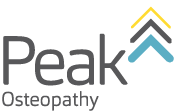Why is sleep so important?
We all know how a good nights sleep can leave us feeling fresh and ready to the tackle the day, but just how beneficial is sleep? In the second of our posts on sleep Dr Belle Picco, Osteopath, explores this question as well as some of the potential outcomes of not getting enough sleep.
The recommended guideline for an adult is 7-9 hours per night. When this isn’t achieved, particularly over consecutive nights, the body and brain begin undergoing a few changes.
Firstly, sleep deprivation can cause an increase in cortisol production. Cortisol is a steroid hormone that is important in regulating blood pressure, blood glucose and our sleep / wake cycles. However, once cortisol builds up it can counter these effects and lead to rapid weight gain, fatigue, high blood pressure and reduced muscle function. Increased levels of cortisol have also been repeatedly linked to an increase in recovery time of musculoskeletal conditions.
During non-REM sleep, the body is able to undergo a repair phase. In this phase the muscles and soft tissue and able to self-heal all while you rest. This is particularly important following an injury or illness. During times of injury or illness the body may need additional sleep to aid this healing process.
Adequate sleep has been found to improve performance. On the contrary, sleep deprivation has been linked with an increased risk of injury and a more rapid rate of fatigue. In athletes sleeping less than 6 hours a night there have been consistent findings suggesting they are more likely to sustain an overuse or overload injury than their counterparts sleeping 8 hours or more.
So, how can you get a better night sleep? Try these simple few tips.
- Yes, we all know using our phones before bed is bad. But, for those who are too addicted to the screen did you know you can turn down the ‘blue’ light? This is the light that has been linked with poorer sleeping patterns. This can be found in the settings section, under ‘display and brightness’ and is called ‘night shift’ in iPhones.
- Regular exercise – just 20 minutes of exercise a day can help improve your sleeping cycles.
- Develop a routine – try to have a regular and consistent time you go to bed and wake up each day. Having a bit of consistency helps regulate the body’s internal sleep cycle and turn this into a pattern.
- Avoid caffeine after lunch – if it hits 3pm and the afternoon is dragging, instead of reaching for a cup of coffee, try a herbal tea instead.
If you have any questions regarding how sleep may be affecting you please don’t hesitate to contact the clinic to speak to one of our helpful practitioners.



